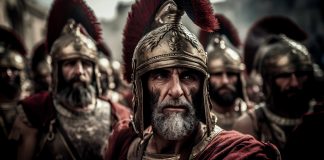Rest and leisure: no one excuses distraction anymore
Nearly four millennia after the stone ratification of the law on weekly rest, the Universal Declaration of Human Rights (1948) reiterates the right of every person to rest and leisure.[1]
Vaccine against death
What would you do if someone denigrated you in public? You could deny the information, but there is no guarantee that you will be able to rehabilitate your image. If you leave things as they are, there is a risk that silence will be interpreted as guilt. If you go to court, the process might take a long time and it may not...
How does the calming prayer help us manage volcanic emotions?
“I live in a high and holy place, but also with the one who is contrite and lowly in spirit, to revive the spirit of the lowly and to revive the heart of the contrite" (Isaiah 57:15).
Three times the world nearly ended
Many doomsayers have “cried wolf” when it comes to the end of the world. Does that mean it’s not going to happen at all?
The migration of trust in the digital age
Trust is the main currency of the age in which we live, and people seem to be changing the directions they invest in faster than in the past. How is our life of faith influenced by how we relate generally to trust?
What is prayer?
God reveals Himself through the Bible, the person of Jesus Christ, nature, and our conscience. Prayer is not revelatory. If it is neither revelatory for humans nor for God, what is prayer then?
Religion is harmful. True or false?
The idea that religion is harmful to the process of human development has no scientific support, but religious conviction has been associated with a number of tragic experiences within families.
Excellence and modesty | An interview with Dr Bert B. Beach
His name is Bert B. Beach. Until his retirement in July 1995, he was director of the Public Affairs and Religious Liberty Department (PARL) of the General Conference of the Seventh-day Adventist Church.
The imperatives of absence
Contrary to one's initial impression, vigilance is not the main theme of Jesus' parables of "absence and expectation." Absence is central to these stories, because it is absence which enriches them, rather than impoverishing them. Absence is not a shortage, a gap, or a sign of non-existence—it is a catalyst.
“God is dead”. Any objections?
The tendency toward the total privatization of religious life is particularly strong today, especially in the new generation.
Instant regrets, memory wipes & free will
Have you ever done something you immediately regret? Perhaps you’ve let your emotions get the better of you, lost control and said something particularly harsh to a friend in the heat of a moment—you wish you could take the words back the moment they left your lips.
The hope of God’s judgement
To be able to see our world and life through the experiences of someone of a different culture and background is rare. It is a gift—but it can also be a jolt to our sensibilities and assumptions. The world we thought we knew can look very different through someone else’s eyes. This is one reason storytelling can be such a powerful form of...
God is love and that makes us eligible, as imperfect as we may be
We have trouble understanding and accepting the image of a loving God, as we have grown too familiar with the type of love that offers itself only when it finds in a person the qualities that make them easy to love.
The darker side of our world
The world of the homeless is the darker side of our world. It is inhabited by vagrants, drug addicts, and the powerless. This world has its own rules, customs, pleasures, and pains, but lacks meaning and peace. And those who enter this world struggle to leave it.
How (and why) to encourage your pastor
After 25 years in the ministry, during which he never once considered leaving, Pastor Tim Kuperus admits that the last three years have been difficult enough for him to consider a different path.


























